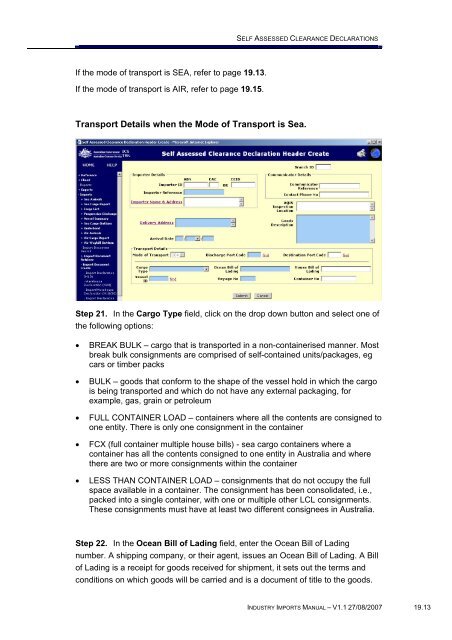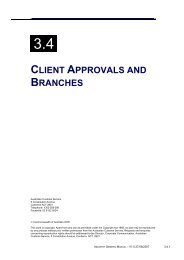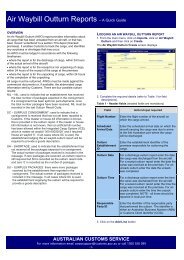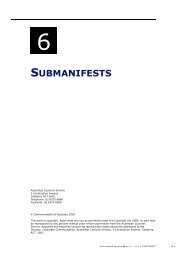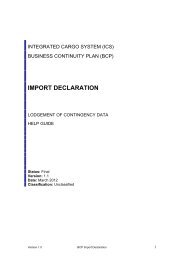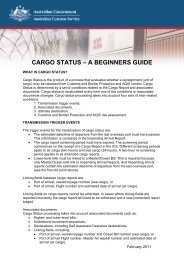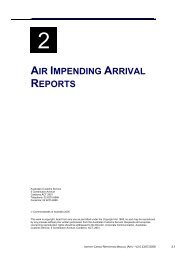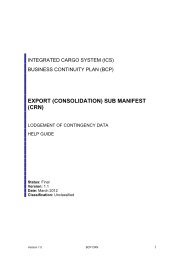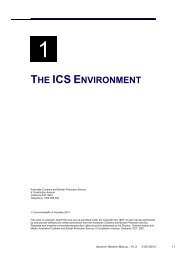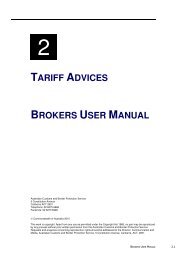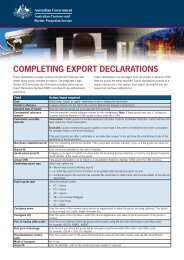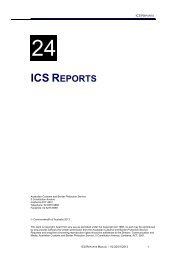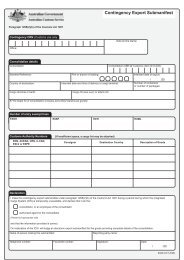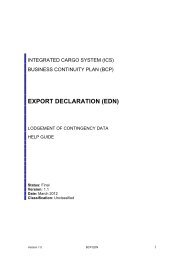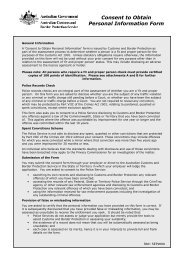Module 19 - Self Assessed Clearance Declarations - Cargo Support
Module 19 - Self Assessed Clearance Declarations - Cargo Support
Module 19 - Self Assessed Clearance Declarations - Cargo Support
Create successful ePaper yourself
Turn your PDF publications into a flip-book with our unique Google optimized e-Paper software.
SELF ASSESSED CLEARANCE DECLARATIONS<br />
If the mode of transport is SEA, refer to page <strong>19</strong>.13.<br />
If the mode of transport is AIR, refer to page <strong>19</strong>.15.<br />
Transport Details when the Mode of Transport is Sea.<br />
Step 21. In the <strong>Cargo</strong> Type field, click on the drop down button and select one of<br />
the following options:<br />
• BREAK BULK – cargo that is transported in a non-containerised manner. Most<br />
break bulk consignments are comprised of self-contained units/packages, eg<br />
cars or timber packs<br />
• BULK – goods that conform to the shape of the vessel hold in which the cargo<br />
is being transported and which do not have any external packaging, for<br />
example, gas, grain or petroleum<br />
• FULL CONTAINER LOAD – containers where all the contents are consigned to<br />
one entity. There is only one consignment in the container<br />
• FCX (full container multiple house bills) - sea cargo containers where a<br />
container has all the contents consigned to one entity in Australia and where<br />
there are two or more consignments within the container<br />
• LESS THAN CONTAINER LOAD – consignments that do not occupy the full<br />
space available in a container. The consignment has been consolidated, i.e.,<br />
packed into a single container, with one or multiple other LCL consignments.<br />
These consignments must have at least two different consignees in Australia.<br />
Step 22. In the Ocean Bill of Lading field, enter the Ocean Bill of Lading<br />
number. A shipping company, or their agent, issues an Ocean Bill of Lading. A Bill<br />
of Lading is a receipt for goods received for shipment, it sets out the terms and<br />
conditions on which goods will be carried and is a document of title to the goods.<br />
INDUSTRY IMPORTS MANUAL – V1.1 27/08/2007 <strong>19</strong>.13


